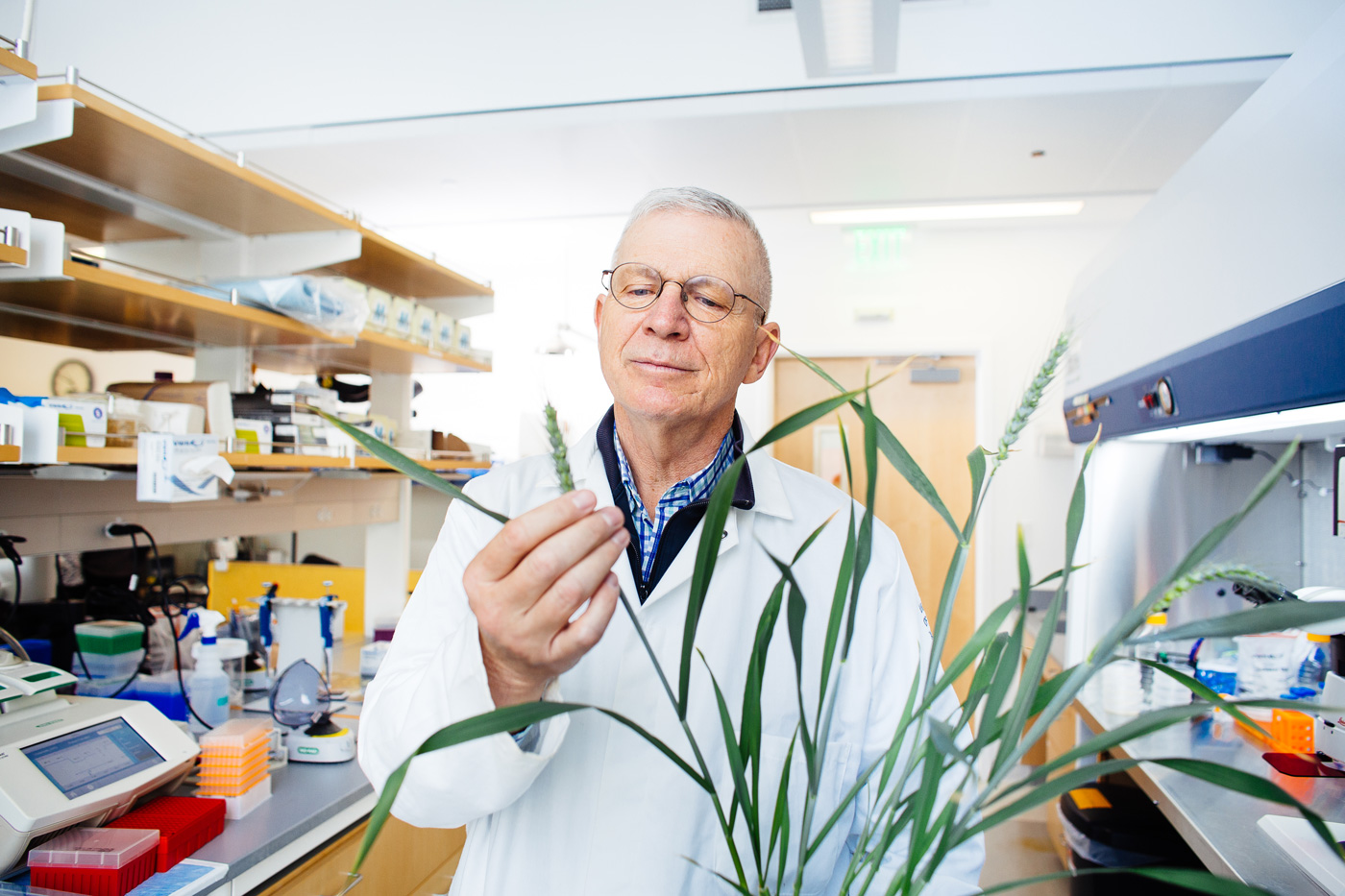
Brian Staskawicz. Photo by Elena Zhukova.
Plant disease has threatened crops like wheat, banana, coffee, and cacao for centuries, shaping human history by challenging our ability to feed, clothe, and sustain society. But as climate change intensifies, scientists are concerned that many of these threats are likely to increase.
Brian Staskawicz, a Professor Emerit in the Department of Plant and Microbial Biology, has studied the mechanisms that govern plant immune response for decades, making numerous contributions to our understanding of molecular plant-microbe interactions (MPMI) and playing a key role in the application of CRISPR genome editing within plant biology. Those breakthroughs and more were chronicled last month in a Cell review article written by Staskawicz, Sainsbury Laboratory researcher Jonathan Jones, and University of North Carolina, Chapel Hill biologist Jeffery Dangl.
Their review offers a timeline of key advances in MPMI over the last 50 years, ranging from early breeding for disease resistance to advances in how immune receptors bind to target molecules and how certain pathogen proteins (effectors) facilitate plant infection. The authors also raise questions that could be answered by leveraging current and future advances in technology.
"As I look back over the last fifty years, I am amazed and proud of the progress that the MPMI research community has made to uncover the molecular basis of plant disease resistance," said Staskawicz, who is also Director of Sustainable Agriculture for the Innovative Genomics Institute. “I am grateful to my international colleagues, and especially to my students and postdocs at UC Berkeley who have substantially contributed to progress in this area. Finally, our ability to translate these discoveries to create sustainable plant disease-resistance solutions to feed the world has become a reality.”
Read the full review article in Cell.
This article was adapted from a new story published by the Sainsbury Laboratory.
